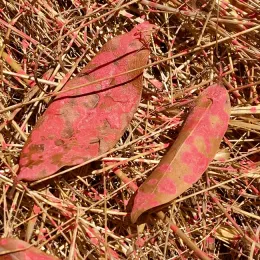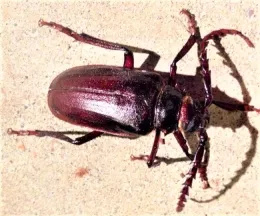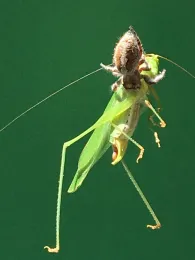
Roseville residents, register by August 7 for the Valley Foothill Watershed Collaborative course and save $25! The 40 hour course combines a science curriculum with guest lecturers, field trips and project-based learning to explore the unique ecology and natural history of Placer County and the Foothills, focusing on the American River Basin Watershed. Register here: https://bit.ly/2mcln2I.

The Living with Fire May 2018 symposium presentations are available on the California Fire Science Consortium YouTube channel. Developed for anybody interested in the intersection of human communities and fire, the symposium brought together dozens of experts in fire ecology and management, community planning, fire safety and preparedness, and global change- many are UC colleagues andCalNat partner organizations.
A take on the importance of studying natural history, featured in our Mount Diablo State Park/ Lindsay Wildlife Experience course's required reading, argues, "'A naturalist is the person who is inexhaustibly fascinated by biological diversity and who does not view organisms merely as models, or vehicles for theory, but rather as the thing itself that excites our admiration and our desire for knowledge, understanding, and preservation,' writes David Schmidley. That is who I am. And I'm sure I'm not alone. But natural history will dwindle -- and humanity will suffer accordingly -- unless society prioritizes natural history research and education, and we who feel this way share our passion with others." Read the article here.

For those of us looking to support those affected by fire in California, Maryam Kia-Keating, Ph.D., Associate Professor of Clinical Psychology at UC Santa Barbara and a Licensed Clinical Psychologist, says, "...recovery takes time and has many phases. It can be different for different people who experienced the same disaster, and it is important not to judge one person's experiences and reactions by another's." Read more here.
UC Santa Barbara and Aquarium of the Pacific? launched a new citizen science program, Spotting Giant Sea Bass, to improve understanding and stewardship of the endangered giant sea bass, the largest bony coastal fish in California. They're an apex predator in kelp forests and likely help shape how the ecosystem functions. The program will provide marine biologists with increased and better data on the fish, which will help answer critical research questions. Citizen scientists upload images of the fish to the program's website. Each individual giant sea bass has a unique spot pattern. Researchers confirm a match to an existing individual in their database or it may be a new addition. More here.
Congratulations to our partner, Tuleyome, for receiving a grant from the Sacramento Zoo Conservation Fund to support projects in their TWO #CalNat courses next year! Early bird pricing is available through September 1st. Learn more about their course at http://calnat.ucanr.edu/Take_a_class/Tuleyome/

